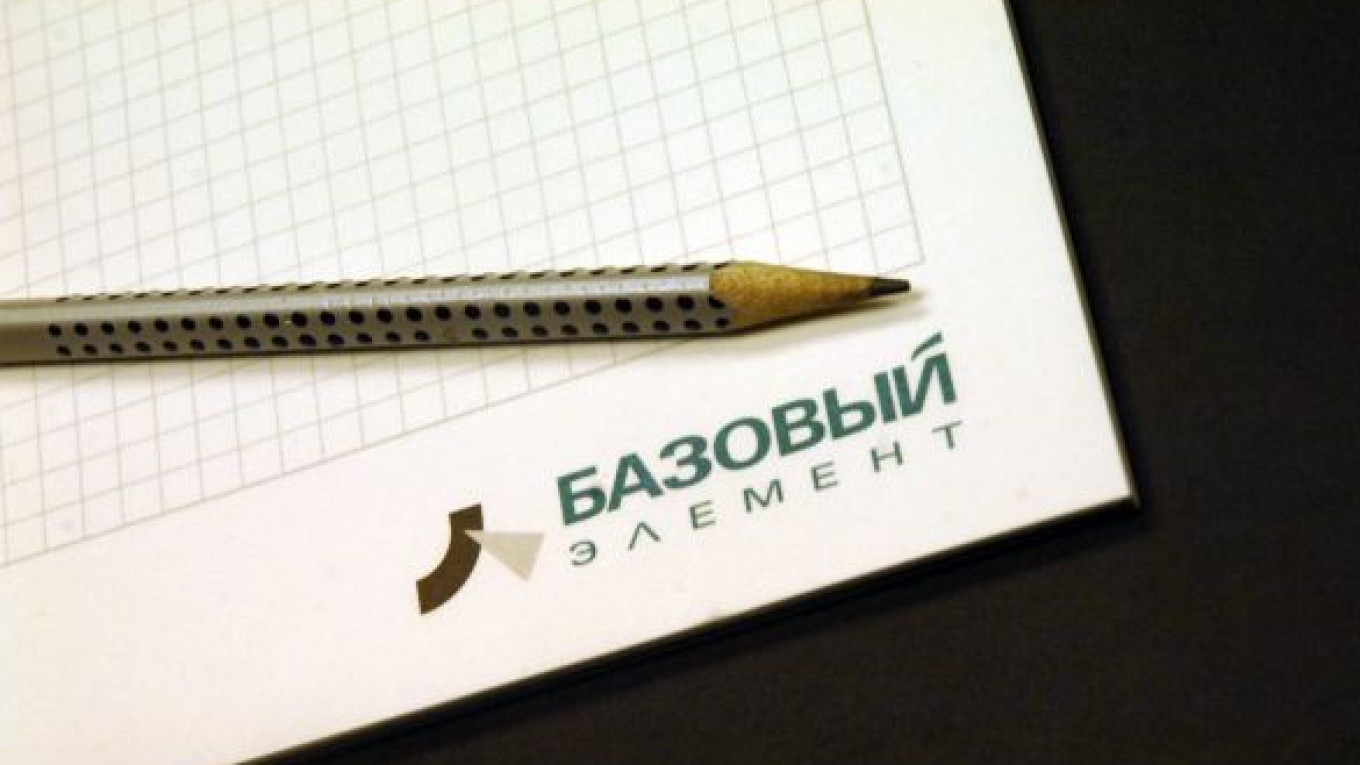Tycoon Oleg Deripaska's vehicle Basic Element, or BasEl, a longtime investor in agriculture, has decided to start trading grain, aiming to sell direct to world markets instead of through Louis Dreyfus and Glencore.
"Basic Element plans to create its own trading structure in order to improve the efficiency of its agribusiness and to get an additional profit," a spokesman for BasEl told Reuters on Monday.
Oleg Deripaska is one of Russia's richest men, and is the biggest shareholder of aluminum giant RusAl, part of which is also owned by Glencore.
Deripaska is increasing his focus on agriculture and grain markets at a time when global wheat prices are up more than 40 percent since mid-June after drought hurt crops across the globe and have fanned fears of a global food crisis.
Wheat production from the Black Sea-region producing countries — Russia, Ukraine and Kazakhstan, which normally supply a quarter of world wheat export volumes — is expected to drop 30 percent this year to 70 million tons because of a drought, according to a Reuters poll.
In particular, Russia, historically the world's third-largest global wheat exporter by volume, is expected to decrease its 2012 wheat harvest to 45.5 million tons, well short of 2011's crop of 56 million.
But Russia, with the world's fourth-largest expanse of arable land and huge potential for modernization in the agriculture industry, is trying to position itself long-term to double grain exports and grab a bigger share of growing world food demand.
The spokesman did not say who would be the head of the trading structure and what name it would get. Andrei Oleinik is head of BasEl's agribusiness currently.
BasEl is not the only Russian industrial group seeking to expand its footprint in agribusiness.
Ambitious Russian port investor Summa Capital beat it to a 50 percent stake in United Grain Co. when the Russian state grain trader was privatized, and BasEl is likely to find itself competing with Summa's Swiss-based trader Soyuz Commodities.
Over the weekend, Soyuz won a part of its first international purchase by Egypt, the world's biggest wheat importer, since the start of this marketing year. Egypt's General Authority for Supply Commodities agreed to buy 60,000 tons of Russian wheat from Soyuz.
The government wants to see Russian grain exports double to 40-50 million tons in the coming decades, up from last year's 27 million tons. To achieve those targets, it will need billions of dollars of investment to turn around its infrastructure.
BasEl was bidding to participate in construction of a Black Sea grain export terminal on the Taman Peninsula, a rival to a nearby outlet planned by UGC, and says it may play a more active role in Russia's infrastructure in the future.
A Message from The Moscow Times:
Dear readers,
We are facing unprecedented challenges. Russia's Prosecutor General's Office has designated The Moscow Times as an "undesirable" organization, criminalizing our work and putting our staff at risk of prosecution. This follows our earlier unjust labeling as a "foreign agent."
These actions are direct attempts to silence independent journalism in Russia. The authorities claim our work "discredits the decisions of the Russian leadership." We see things differently: we strive to provide accurate, unbiased reporting on Russia.
We, the journalists of The Moscow Times, refuse to be silenced. But to continue our work, we need your help.
Your support, no matter how small, makes a world of difference. If you can, please support us monthly starting from just $2. It's quick to set up, and every contribution makes a significant impact.
By supporting The Moscow Times, you're defending open, independent journalism in the face of repression. Thank you for standing with us.
Remind me later.






